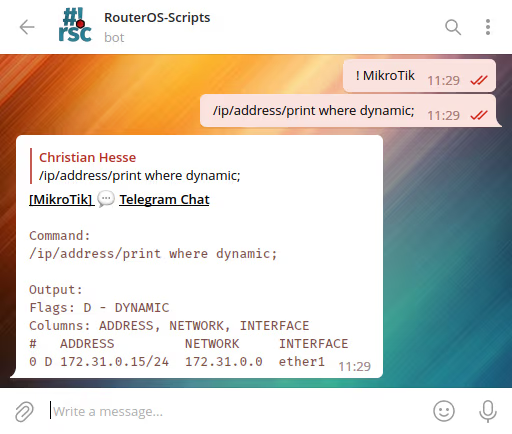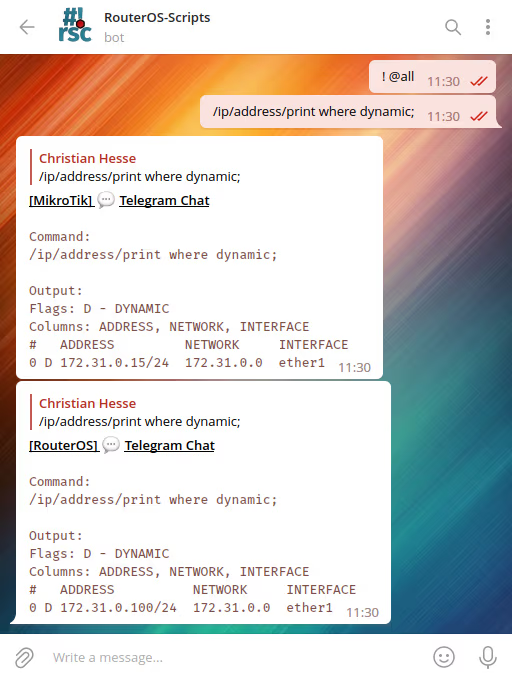Chat with your router and send commands via Telegram bot
ℹ️ Info: This script can not be used on its own but requires the base installation. See main README for details.
Description
This script makes your device poll a Telegram bot for new messages. With these messages you can send commands to your device and make it run them. The resulting output is send back to you.
Requirements and installation
Just install the script and the module for notifications via Telegram:
$ScriptInstallUpdate telegram-chat,mod/notification-telegram;
Then create a schedule that runs the script periodically:
/system/scheduler/add start-time=startup interval=30s name=telegram-chat on-event="/system/script/run telegram-chat;";
⚠️ Warning: Make sure to keep the interval in sync when installing on several devices. Differing polling intervals will result in missed messages.
Configuration
Make sure to configure
notifications via telegram first. The
additional configuration goes to global-config-overlay, these are the
parameters:
TelegramChatIdsTrusted: an array with trusted chat ids or user namesTelegramChatGroups: define the groups a device should belong to
Usage and invocation
This script is capable of chatting with multiple devices. By default a
device is passive and not acting on messages. To activate it send a message
containing ! identity (exclamation mark, optional space and system's
identity). To query all dynamic ip addresses form a device named "MikroTik"
send ! MikroTik, followed by /ip/address/print where dynamic;.

Devices can be grouped to chat with them simultaneously. The default group
"all" can be activated by sending ! @all, which will make all devices
act on your commands.

Send a single exclamation mark or non-existent identity to make all devices passive again.
Known limitations
Do not use numeric ids!
Numeric ids are valid within a session only. Usually you can use something like this to print all ip addresses and remove the first one:
/ip/address/print;
/ip/address/remove 0;
This will fail when sent in separate messages. Instead you should use basic scripting capabilities. Try to print what you want to act on...
/ip/address/print where interface=eth;
... verify and finally remove it.
/ip/address/remove [ find where interface=eth ];